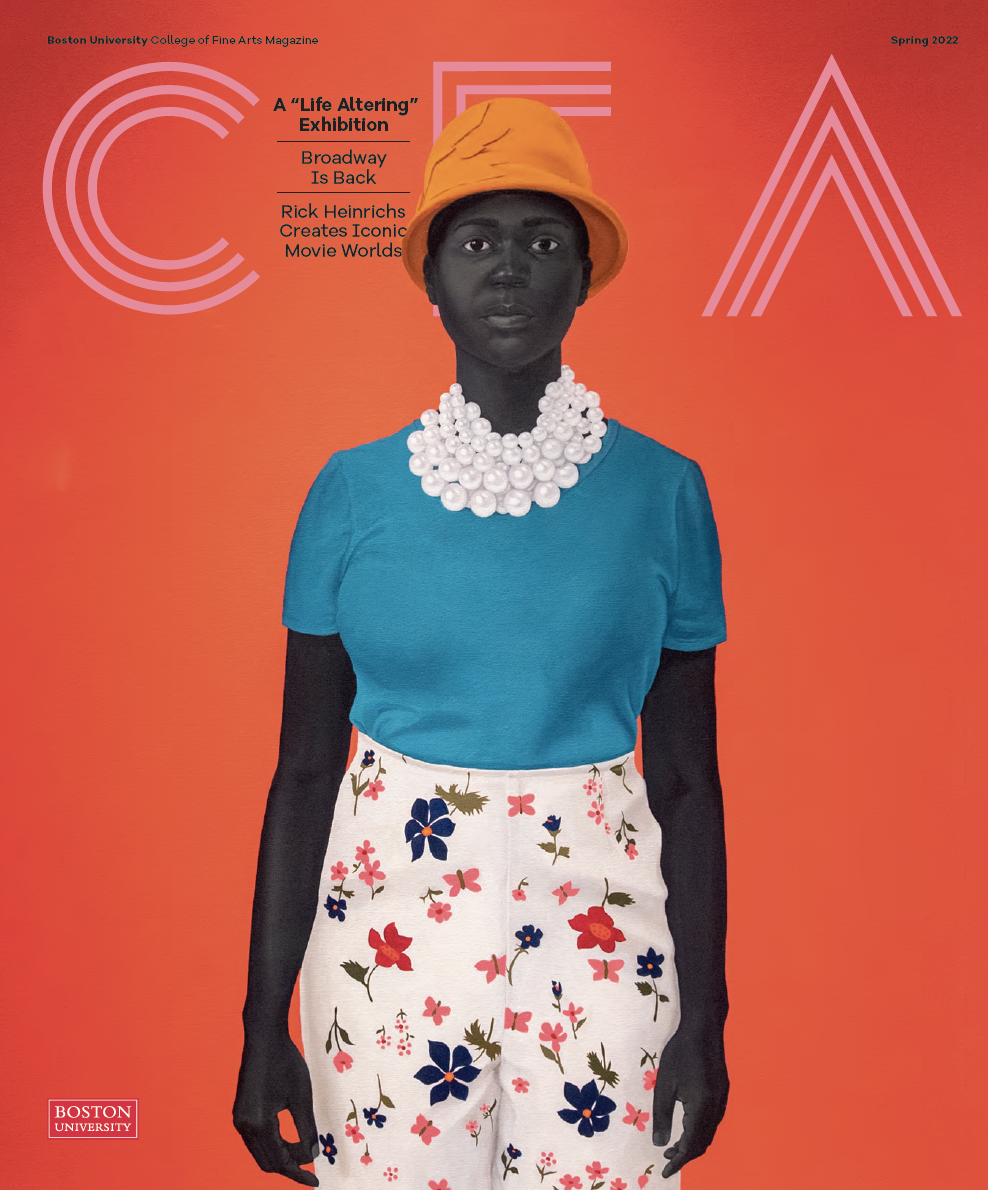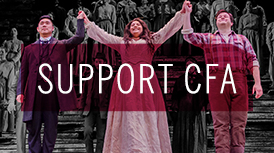Multitasking Maestro
What do J. S. Bach, Leonard Bernstein, the Marsh Chapel Choir, and the Rolling Stones have in common?
By Lara Ehrlich | Photo by Megan Greenlee Photography

As the music and arts director for New York’s Trinity Wall Street church, Julian Wachner (’91, ’96) programs more than 600 events. Photo by Megan Greenlee Photography
Composer and Grammy Award-nominated conductor Julian Wachner (’91, ’96) answers his phone at the Jacksonville Airport baggage claim. This is his only opportunity for an interview, as he is about to embark on a trip with “five priests and a theologian.” This might sound like the opening of a bad joke, but it’s actually a retreat for the senior staff of New York’s Trinity Wall Street church, where Wachner is the music and arts director. Throughout the next four days, they will discuss the programming for the coming year, which will include more than 600 events. In his spare time, Wachner is also the music director of the Kennedy Center’s Washington Chorus and serves as a guest conductor at organizations throughout the country. As he gathers his bags and traverses the airport to meet his colleagues, he keeps up his half of the interview with the dexterity of a seasoned conductor.
You’ve said you chose to attend BU to earn a well-rounded education. How did academics impact your career?
My career is grounded in study. I didn’t jump from one huge musical success to the next; I had a long existence as a professor at BU and MIT, and then at McGill University. Now that I’m in my early 40s, I’m beginning to have the kind of success and recognition that some people have in their 20s. I’m very happy about the way it’s happened because I’m very calm and confident in my musical abilities. I feel like I have something to say on a human level, not just a musical level.
What do you want to say?
As a composer I tackle subjects like love and loss in Come, My Dark-Eyed One, which I wrote for Scott Allen Jarrett’s (’99, ’08) Back Bay Chorale, and thorny theological issues like in my first symphony, Incantations and Lamentations, and issues of the day like in Du Yun’s opera Angel’s Bone, which is about human trafficking. I’m trying to make a difference in people’s lives, whether to give them a glimmer of hope at Christmas, to make them think seriously about an intense subject, or to touch their souls.
“I don’t think I’m elitist in my choice of music or the way that I make music, and I think people feel that.”—Julian Wachner
The New York Times wrote of your Bach series at Trinity that, “no one would mistake the crowd at the free Bach at One concerts for one percenters. Many are tourists, stopped in their tracks by what they hear.” Who do you see as your audience?
I don’t think I’m elitist in my choice of music or the way that I make music, and I think people feel that. One of my models was Leonard Bernstein (Hon.’83), who felt that music should be for everybody, and that it is a way to bring people together. At our Trinity performances, we have people who don’t know where they are going to sleep that night and people who live on the Upper East Side all in one place together, creating a community.
The Trinity Wall Street Choir performed “You Can’t Always Get What You Want” with the Rolling Stones in December 2012. What inspired this collaboration?
I got a Facebook message from a critic whose husband is tied into the music business and was looking for a New York-based choir. She said, “It’s a famous rock group, and I can’t tell you any more than that.”
The show at Barclays Center in Brooklyn was the first US performance of the Rolling Stones’ 50th anniversary tour, and they wanted the choir to be a surprise for the audience. When I got out onstage for the sound check, Mick Jagger walked over and was like, “Hey, I’m Mick Jagger,” and I was like, “Yeah, I know who you are!”
It was the first time they had ever performed “You Can’t Always Get What You Want” with a live choir. You need a professional-level choir to sing that high C for as long as it demands; we were lucky we had three ladies who could do it. When the Stones decided to come back in June 2013, they asked me to recommend a choir, so I suggested BU’s Marsh Chapel Choir.
When the Rolling Stones asked Wachner to recommend a choir for “You Can’t Always Get What You Want,” he suggested BU’s Marsh Chapel Choir. Video by Chris Cummings
You were the University organist and choirmaster for Boston University’s Marsh Chapel for 11 years, and you recently invited the Choir and the Collegium Orchestra to perform at Trinity’s weekly Bach at One concert. Why did you invite the BU musicians to perform at Trinity?
I invited them to keep the relationship going between me and Scott Allen Jarrett, who was my associate at Marsh Chapel for about five years and is now the director. Between the two of us, we have maintained an incredible musical tradition since 1990, and it was logical to return to my alma mater to activate that professional scholarship.
How do you balance all of your professional roles and maintain your sanity?
The variety keeps my work fresh and alive, and the fact that I’ve prioritized my wife’s happiness over everything else keeps me balanced. I’ve done this enough now that I’m able to do the work without getting exhausted. In fact, the work feeds my creativity and my energy. My staff at Trinity knows that I’m studying scores at 6 in the morning and 11 at night, and conducting. Even some of the twentysomethings ask, “How do you have all this energy?”










